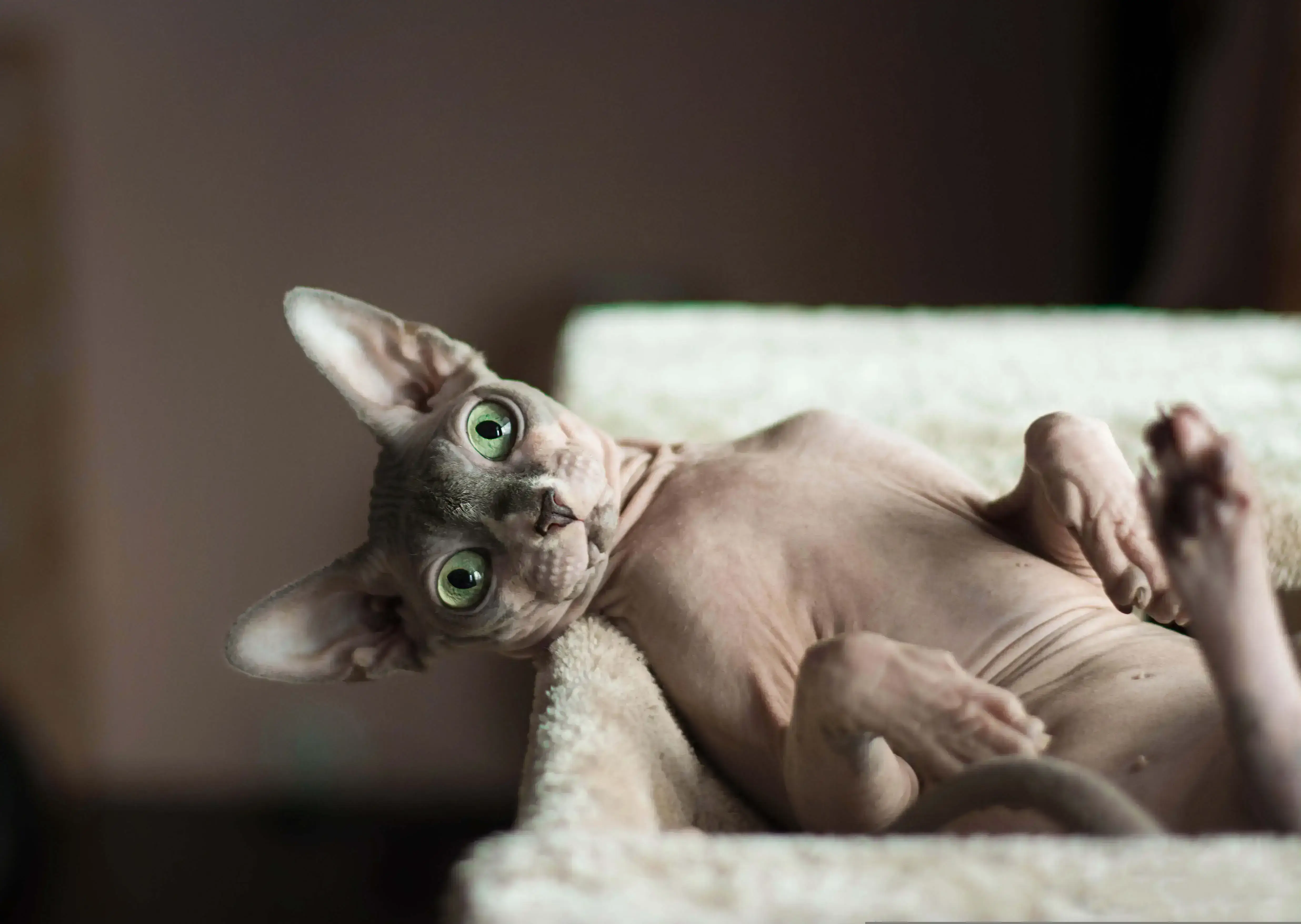
Cats don't come in as many shapes and sizes as dogs, but that doesn't mean there aren't a lot of beautiful, strange, and unique breeds. Check out 14 favourite weird but cool cat breeds!
Here are 14 of the weirdest, most beautiful, unique cat breeds that challenge the norm. What most of us commonly define as a cat includes the usual: characteristic pointy ears, soft fur, a long curly tail, and a little frame.
These cats just might make you change your idea of what a cat actually is. From Persian cats and British Shorthairs to the Turkish Angora and Russian Blues, these are some of the coolest cat breeds around.
Japanese Bobtail
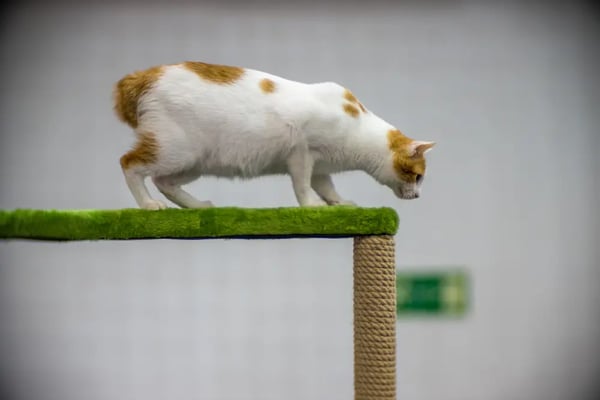
Called Mi-Ke in Japan (meaning Three Fur or Colours), Japanese Bobtails are mostly white with orange and black patches, making them one of the cutest cat breeds. This weird cat has a little stub for a tail, which looks like it would be much more at home on a rabbit, and Mi-Kes make for excellent lap cats!
Teacup Persians
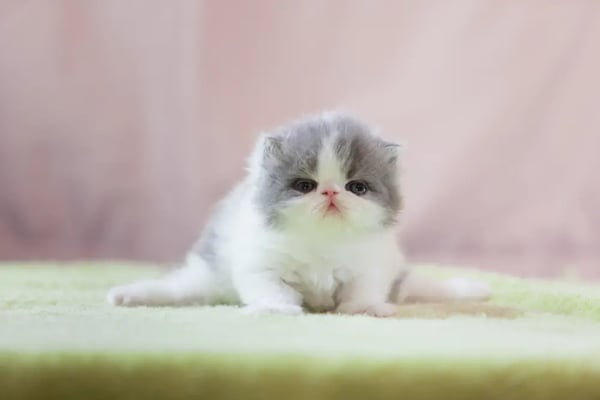
The Teacup Persian is a relatively unique cat breed that is extremely popular. Following the tiny craze that dog breeds went through, the Teacup Persian looks like a kitten, even as an adult. This tiny but adorable cat is usually only 4-7lbs for a female and 5-8lbs for a male full grown.
Munchkin
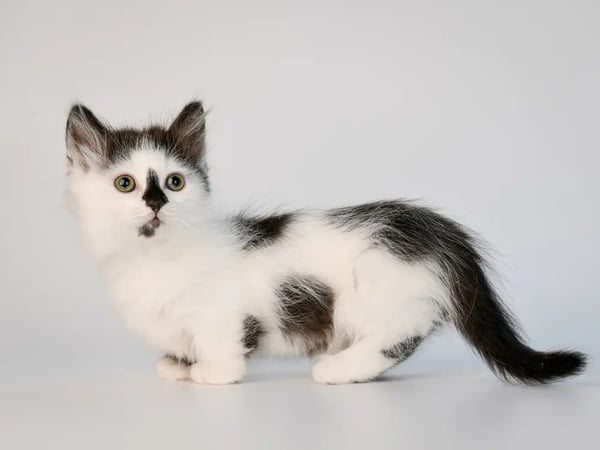
Munchkin cats are one of the coolest cats and have only been around since the mid-90s. Known for their abnormally short legs, these cats are similar to dachshund dogs in stature. This unusual feature has caused some breeders to refuse to list them as a breed for fear of potential anatomical problems.
Pixie-Bob
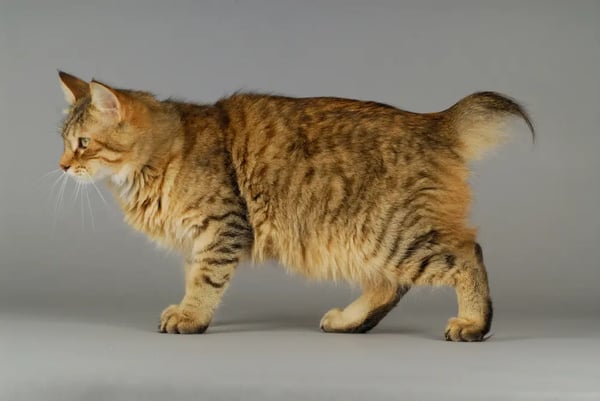
The Pixiebob cat gets its name from its supposed genetic heritage - the bobcat. Pixie-bobs are polydactyl, meaning they have 6 or 7 toes on each foot.
Sphynx
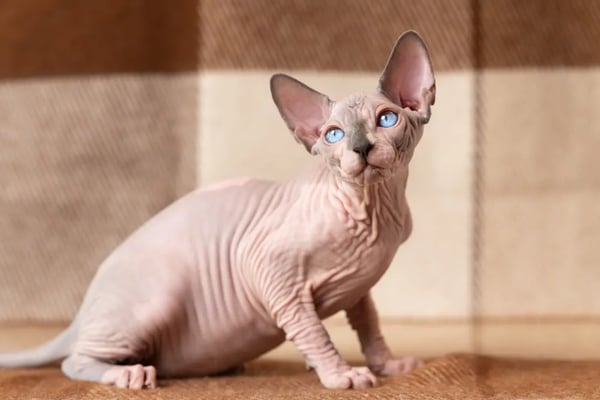
Sphynx cats are known for being hairless. Also called the Canadian Sphynx, this odd breed was founded in 1966 in Toronto, Canada, and many have strikingly beautiful blue eyes.
Levkoy
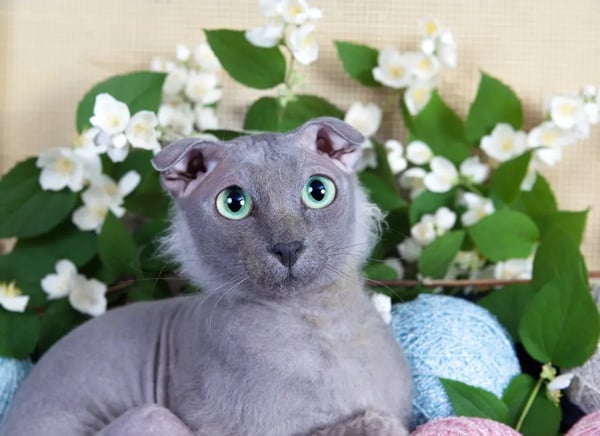
Levkoys have little to no hair and distinct folded ears. Haven't heard of the Levkoy? You're probably not alone. This rare breed was only recognized in 2005.
Scottish Fold
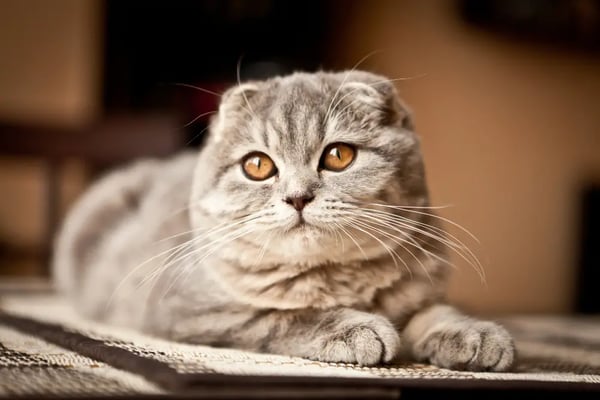
Scottish Fold cats are known for their ears, which appear tiny and folded. They have a generally rounded appearance, which just adds to their cuteness along with a long-haired nature!
Peterbald
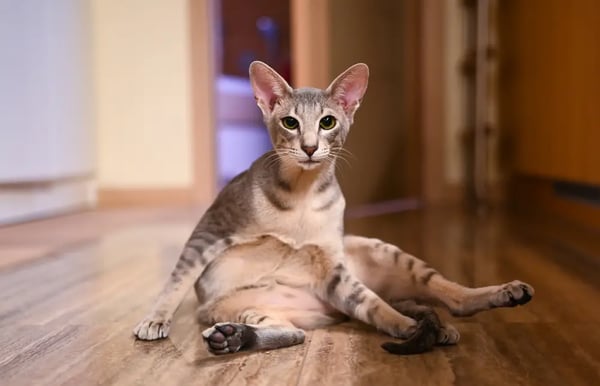
Look familiar? The Peterbald may look like the Russian cousin to the Sphynx, but their baldness comes from a different gene. Also, some Peterbalds have little hair (like the cutie pictured above). Like the Sphynx and any sparsely-haired breeds, these beauties can burn in the sun.
LaPerm
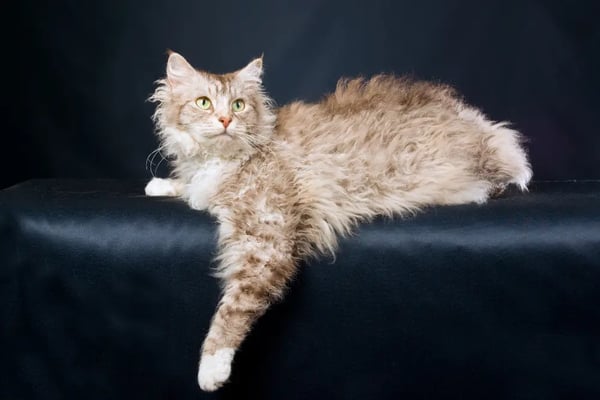
The name sounds like a joke, but these sweet kitties are definitely for real. Just as their name suggests, LaPerm cats have a unique curly coat.
Elf Cat
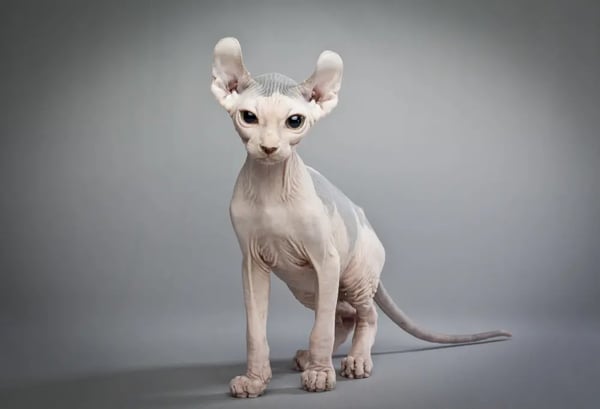
Who comes up with these names? I'm not sure what else you might call this interesting hairless breed. The Elf Cat is actually a cross between the Sphynx and the American Curl, producing an intriguing, intelligent breed with few health issues. These beautiful, unique cats with blue eyes.
Egyptian Mau Cats
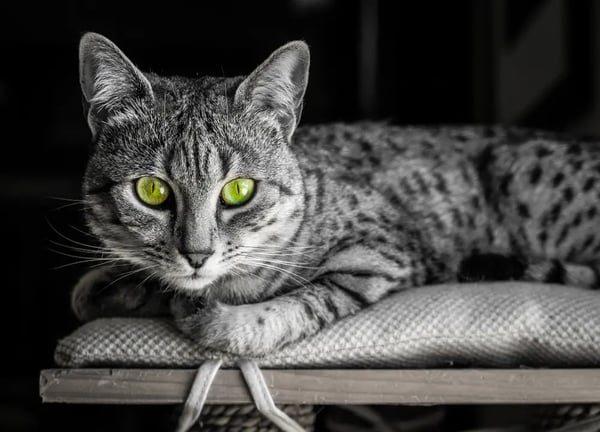
Few cats have as gorgeous and exotic-looking a coat as the Egyptian Mau, making it one of the most beautiful cat breeds around. They are one of the few naturally spotted domestic coolest cat breeds and also happen to be the fastest of all housecats.
Manx
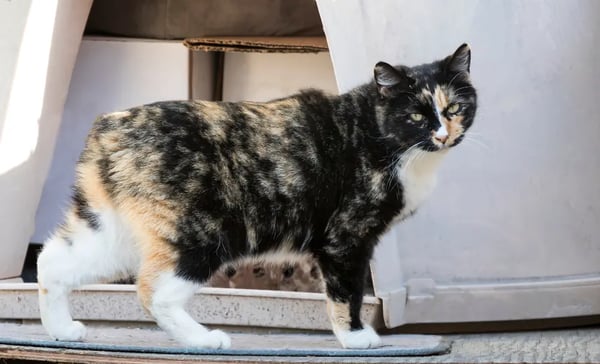
"What happened to its tail?" might be something you hear often when you own a Manx cat. Manx cats are long-haired and born without tails or with short stubby tails. A genetically debunked legend has it that these cats, or "cabbits", were the offspring of a cat and a rabbit! Finally, their fluffy coats make them excellent lap cats.
Norwegian Forest Cat
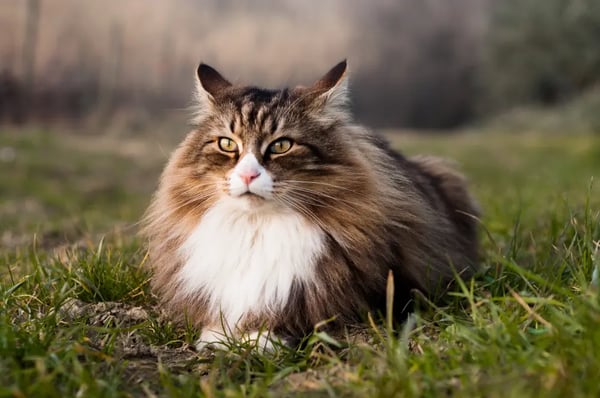
These furry cats are thought to have accompanied Vikings on their boat raids as mousers for the ships. In any case, they appear in Norway folklore from as far back as 1000 AD. Their bushy coats are naturally suited for the cold climate they hail from.
Highlander Cat
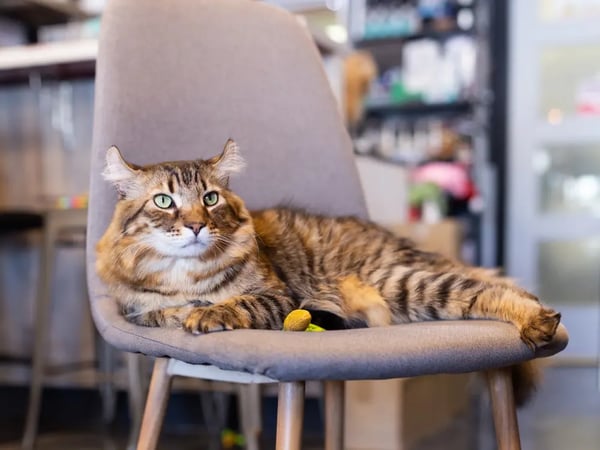
The Highlander cat has an exotic look, with a short tail and distinctly curled ears. This beautiful cat has a wild cat look, with some of its lineage coming from wild/domestic hybrids.
Want More Fun Cat Breeds?
These are definitely some unconventional cat breeds, but we are starting to see more and more of them. Many of these crazy cat breeds are making a resurgence thanks to cat enthusiasts and responsible breeders - especially Russian Blues and Persian cats.
If you are the outdoorsy type, then you'll love our list of the best cat breeds for outdoor enthusiasts!
Frequently Asked Questions About Weird Cat Breeds
What makes an exotic cat breed unique?
An exotic cat breed is characterized by its distinct appearance, which is often different from the typical features of more common domestic cat breeds. These breeds can exhibit a range of unique traits, such as unusual coat patterns, colours, textures, eye shapes, and body structures.
What is the most exotic cat breed?
Determining the "most" exotic cat breed can be subjective, as various breeds possess unique and exotic characteristics. Breeds like the Savannah cat, Bengal cat, and Sphynx cat are often considered exotic due to their distinctive appearances and, in some cases, their wildcat ancestry.
Which exotic cats make good pets?
Several exotic cat breeds can make good pets, but it's essential to consider their specific needs and temperaments. Breeds like the Sphynx, Scottish Fold, and Teacup Persians are known for their affectionate and friendly nature, making them suitable companions for households seeking unique feline friends.
What is the difference between exotic and domestic cats?
Exotic cats often refer to breeds with unique physical traits, appearances, or genetic backgrounds that differ significantly from the more common domestic cat breeds. These traits can include distinct coat patterns, sizes, or even hairlessness.
Which cat breed is hairless?
The Sphynx cat stands out as one of the most well-known hairless breeds, characterized by its bald appearance resulting from a recessive genetic mutation. With its elegant demeanour, deep-set lemon-shaped eyes, slim body, and elongated legs, this breed exudes an ethereal charm.
Are unique cat breeds expensive?
Yes, unique cat breeds often tend to be more expensive compared to common domestic cat breeds. The rarity, distinct appearance, and sometimes specialized care requirements of these unique breeds contribute to their higher price tags.
.png?width=200&height=66&name=logo%20(1).png)





